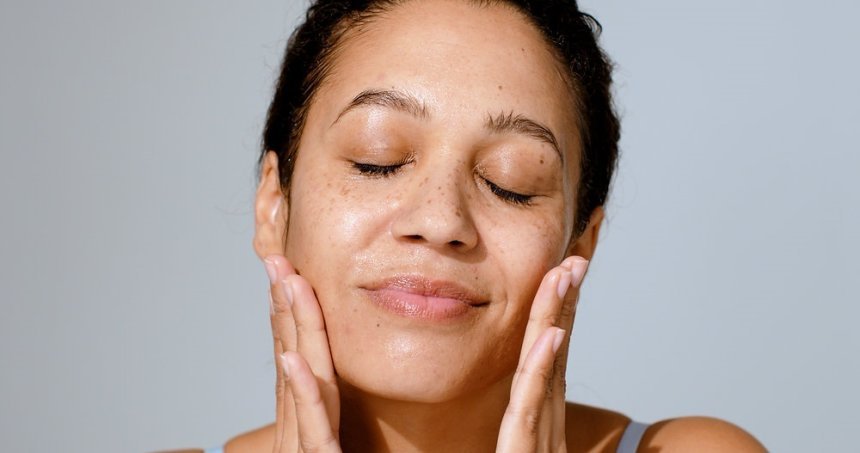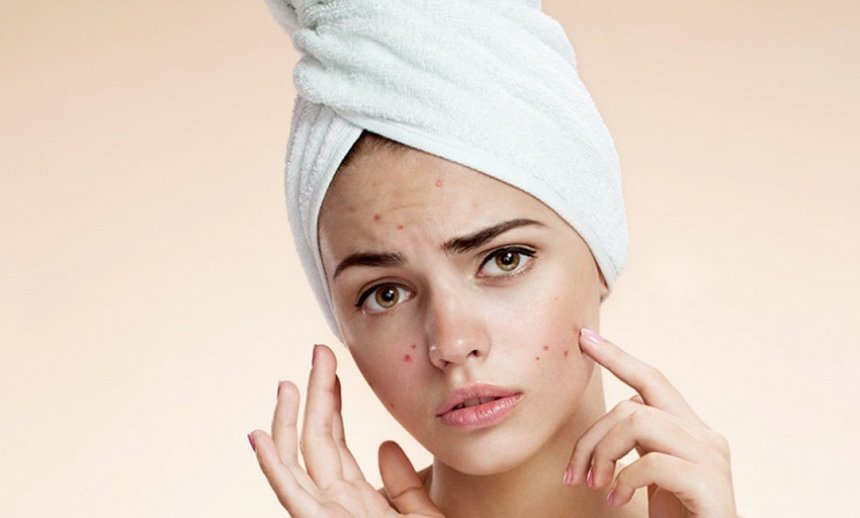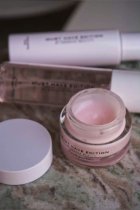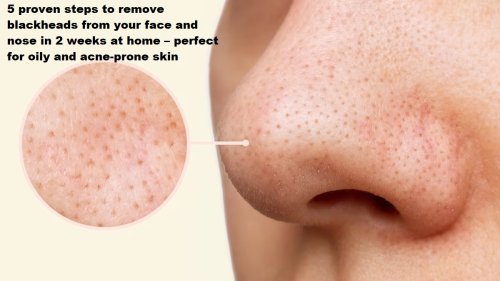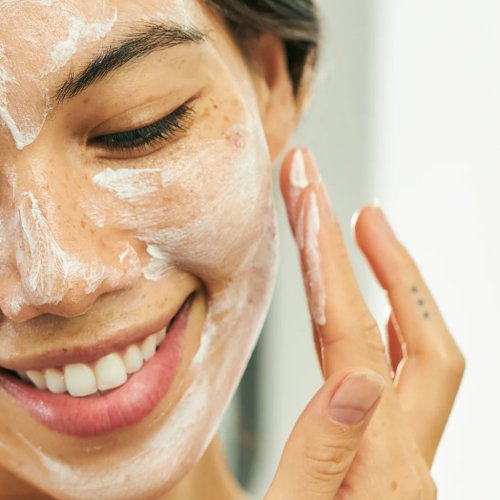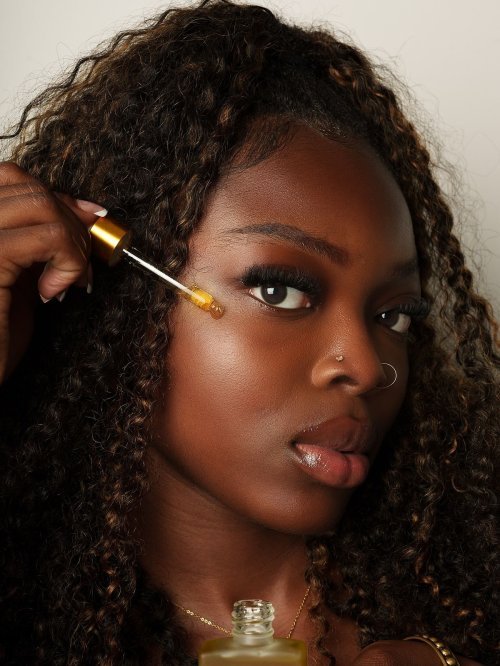Niacinamide in Skincare - 7 Powerful Reasons to Add It to Your Routine
Have you ever tried asking your dermatologist about the ingredient Niacinamide in Skincare? And what was the response? Or perhaps you're not even aware of this key ingredient in your skincare routine. In this post, I will explore why Niacinamide in Skincare should be part of your routine.

Niacinamide in Skincare - 7 Powerful Reasons to Add It to Your Routine
Have you ever tried asking your dermatologist about the ingredient Niacinamide in Skincare? And what was the response? Or perhaps you're not even aware of this key ingredient in your skincare routine. In this post, I will explore why Niacinamide in Skincare should be part of your routine.
Niacinamide, also known as vitamin B3 or nicotinamide, is a water-soluble vitamin naturally found in many foods and also produced by the body. If you're wondering whether it's the same as vitamin B3, the answer is yes. It’s one of the two main forms of B3, the other being niacin.
What makes niacinamide truly stand out is its versatility. It works for nearly every skin type and addresses a wide range of skin concerns. Let’s explore the incredible benefits this ingredient has to offer.
How does it work?
Niacinamide supports the skin by boosting the production of ceramides, waxy lipids that are vital for keeping the skin barrier strong and healthy. It also helps regulate sebum levels, which can play a role in preventing acne breakouts. On top of that, niacinamide offers anti-inflammatory benefits, helping to soothe irritated skin and minimize redness.
Who do you recommend niacinamide for?
Although niacinamide is suitable for all skin types, it is especially beneficial for the following:
Oily or acne-prone skin: Niacinamide helps control excess oil and can reduce the appearance of enlarged pores.
Uneven skin tone and texture: It's highly effective at fading dark spots, calming redness, and smoothing out rough skin.
Sensitive skin: Niacinamide is usually well-tolerated, even by those with sensitive skin. It also helps reinforce the skin’s natural barrier, offering extra protection.
Benefits of niacinamide
The following are the benefits of niacinamide and the reasons it should be part of your skincare routine.
1. Minimizes enlarged pores
Niacinamide is widely recognized for its ability to reduce the look of enlarged pores. It works by normalizing the pore lining and regulating how much oil the sebaceous glands produce. This helps prevent oil and debris from building up, which often leads to clogged pores and uneven, bumpy skin.
When pores become clogged, they tend to stretch, making them appear larger. Consistent use of niacinamide can help pores return to their original size, reducing their visibility. In addition, sun damage can stretch pores and create a rough texture sometimes called “orange peel skin.” Higher concentrations of niacinamide can visibly tighten pores by strengthening the skin’s structure, often resulting in a smoother, more refined texture.
Also See: 7 Surprising Uses of Vaseline for Skin That No One Talks About
2. Add moisture
Niacinamide supports the skin by repairing and strengthening its surface, helping to prevent moisture loss and dehydration. When essential fatty acids, particularly ceramides , in the skin barrier start to break down, the skin becomes more prone to issues like dry patches, flakiness, and heightened sensitivity.
If you have dry skin, using niacinamide topically can enhance the hydrating effects of your moisturizer, allowing the skin to better retain moisture and fight off dryness. It also works effectively alongside common moisturizing ingredients such as glycerin, non-fragrant plant oils, cholesterol, sodium PCA, and sodium hyaluronate, boosting their ability to keep the skin soft and smooth.
3. Brightens skin
Niacinamide is especially effective in addressing hyperpigmentation, dark spots caused by sun exposure, and uneven skin tone. These issues often result from an overproduction of melanin , the pigment that gives skin its color.
When used at concentrations of 5% or higher, niacinamide works through multiple mechanisms to prevent new discoloration from forming. It also helps fade existing dark spots, promoting a more even and balanced complexion.
Also Check: 8 Best Natural Exfoliants for Glowing Skin You Should Know in 2025
4. Skin barrier support
Studies show that niacinamide strengthens the skin barrier by helping regulate the production of key elements like ceramides, fatty acids, and cholesterol. As we age, the skin’s natural ability to produce these components declines, making niacinamide a valuable ingredient for maintaining a healthy, resilient barrier.
5. Helps regulate oil production
Another most impressive benefit of niacinamide is its ability to control oil production in the skin. As noted earlier, this helps reduce the appearance of enlarged pores, especially those that look stretched. By influencing the sebaceous glands and managing how much oil is released, niacinamide also helps minimize various types of bumps on the skin, ultimately promoting a smoother, more balanced complexion.
Also Read: 5 Amazing Benefits of Coconut Oil on Face Overnight for Dry Skin
6. Reduces signs of aging
Research shows that niacinamide can improve the skin’s extracellular matrix, which plays a vital role in keeping skin firm and elastic. This matrix is made up of key components like collagen and elastin, both of which are essential for maintaining youthful, resilient skin. As we get older, the production of these proteins naturally slows down. However, niacinamide has been found to boost collagen production and also help prevent its breakdown, supporting a firmer, more youthful appearance.
7. Soothes redness
This anti-aging powerhouse is also an excellent option for individuals with sensitive or weakened skin, thanks to its anti-inflammatory effects. Research shows that niacinamide can help block the skin’s inflammatory reaction to environmental stressors, which are a major cause of skin barrier damage. As a result, it helps soothe irritation and reduce redness often associated with stressed or reactive skin.
Share
What's Your Reaction?
 Like
0
Like
0
 Dislike
0
Dislike
0
 Love
0
Love
0
 Funny
0
Funny
0
 Angry
0
Angry
0
 Sad
0
Sad
0
 Wow
0
Wow
0

